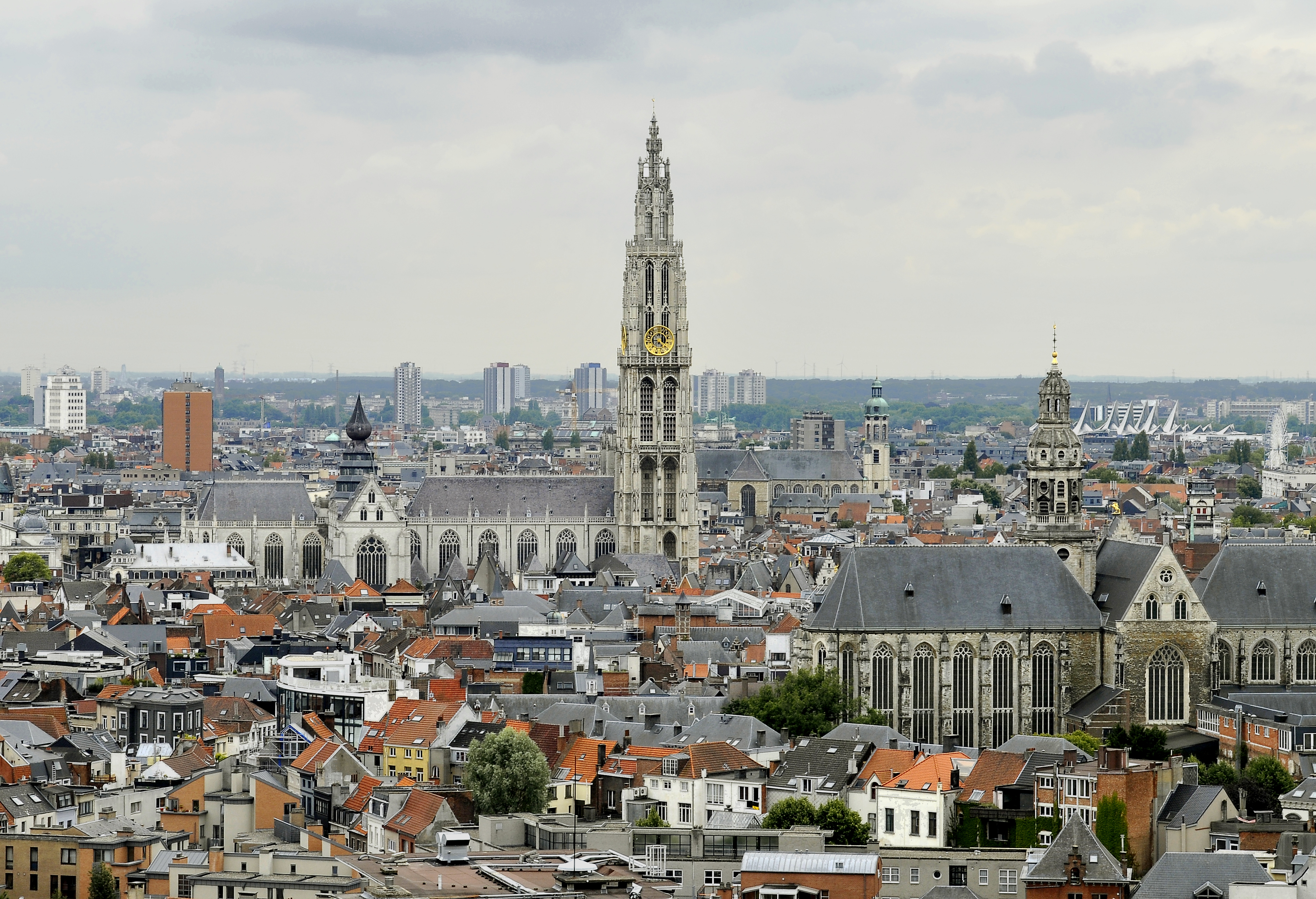Back
Poster Session 1
- A Benchmark for Recipe Understanding in Artificial Agents
Jens Nevens, Robin De Haes, Katrien Beuls & Paul Van Eecke - Who is sharing the news in the Dutch Twittersphere? An exploratory analysis of news sharers' self-presentation
Iris Baas & Tommaso Caselli - Differences in Children's Spelling Performance for Typed and Handwritten Dictations
Wieke Harmsen, Sasja Westgeest, Catia Cucchiarini & Helmer Strik - Examining Word Embeddings in Biomedical Language Models: A Comparative Analysis of BioBERT and BlueBERT
Klara Willberg & Jelke Bloem - Keyword extraction with semantic surprisal from LDA and LSA: a comparison of topic models
J. Nathanael Philipp, Max Kölbl, Yuki Kyogoku, Tariq Yousef & Michael Richter - Automatic sentence-level simplification for Dutch
Charlotte Van de Velde, Bram Vanroy & Vincent Vandeghinste - Link Prediction based on Graph Neural Networks using Textual Data for Recommending Dutch News Articles
Naomi Rood, Hongyun Liu & Felix van Deelen - EmotioNL Demo: A Framework for Dutch Emotion Detection in Crisis Communication
Luna De Bruyne, Orphée De Clercq & Véronique Hoste - Bridging the gap between patients and scientists to extract (lactose) intolerance correlations
Lotte de Groot - Beyond Perplexity: Definition Generation for Examining Temporal Generalization of Large Language Models
Iris Luden & Raquel Fernández - Comparative Evaluation of Topic Generation: Human vs. LLMs
Andriy Kosar, Guy De Pauw & Walter Daelemans - Mapping semantic networks to Dutch word embeddings as a diagnostic tool for cognitive decline
Maithe van Noort, Jelke Bloem & Michal Korenar - Historical Dutch spelling Normalization with Neural Machine Translation
Andre Wolters & Andreas van Cranenburgh - Transfer Learning for Code-Mixed Data: Do Pretraining Languages Matter?
Kushal Jayesh Tatariya, Heather Christine Lent & Miryam de Lhoneux - Exploring LLMs' capabilities for Dutch Grammatical Error Detection in L1 and L2 texts
Serafina Van Geertruyen, Joni Kruijsbergen, Véronique Hoste & Orphée De Clercq - Balancing Control and Flexibility in a Task-oriented Chatbot: an Industry Use Case
Jeska Buhmann, Maxime De Bruyn, Ehsan Lotfi & Walter Daelemans - When the Cook Makes a Mistake: Analyzing Communication Errors and (In)Formal Repair Strategies in Human-Robot Dialogues
Lara Lismont, Sofie Labat, Ruben Janssens, Thomas Demeester, Tony Belpaeme & Véronique Hoste - Annotation pipeline for unedited Byzantine Greek
Colin Swaelens, Ilse De Vos & Els Lefever - Towards a Valid and Transparent ML Methodology for Dutch AES
Orphée De Clercq, Geert De Meyer, Fauve De Backer & Maribel Montero Perez - Controllable Sentence Simplification in Dutch
Theresa Seidl, Vincent Vandeghinste & Tim Van de Cruys - Interplay between linguistic alignment and sentiment in online discussions
Suzanna Wentzel, Mariët Theune, Sumit Srivastava & Doina Bucur - Retrieval Augmented Generation of Tabular Answers at Query Time for domain-specific Question Answering
Irene Papadopoulou, Jakub Zavrel & Paul Groth - A pipeline for identifying and extracting causality in text
Dominique Blok, Roos Bakker, Gino Kalkman & Maaike de Boer - Perspective Matters: Event Framing in Language and Society
Gosse Minnema, Sara Gemelli, Chiara Zanchi, Tommaso Caselli, Viviana Patti & Malvina Nissim - Out with the old, in with the new? Comparing embedding models for feature engineering
Michael Bauwens, Demi Paspont & Peter Vanbrabant - Conversational Agents for Dutch: the Research Agenda of the LESSEN Project
Mert Yazan, Jirui Qi, I-Fan Lin, Xinyi Chen, Mohanna Hoveyda, Arianna Bisazza, Raquel Fernandez, Fatih Turkmen & Suzan Verberne - Towards exploratory dialogue: Classifying User Transitional Intent to Enable Multi-turn conversational agents
Erik Frohn (Radboud University) - Personality Style Recognition via Machine Learning: Identifying Anaclitic and Introjective Personality Styles from Patients’ Speech
Semere Kiros Bitew, Vincent Schelstraete, Klim Zaporojets, Kimberly Van Nieuwenhove, Reitske Meganck & Chris Develder - What's Mine becomes Yours: Context-Dependent Paraphrases in News Interviews
Anna Wegmann, Tijs van den Broek & Dong Nguyen - Dutch BERT models for classifying lifestyle characteristics in clinical texts
Hielke Muizelaar, Peter van der Putten & Marco Spruit - Near-Verbatim Transcription of Dutch Speech and Its Effect on Automatic Speech Recognition
Bastiaan Tamm, Mara Barberis, Rik Vandenberghe & Hugo Van hamme - Speech versus script: a language model analysis
Serkan Bay & Jelke Bloem - Uncovering Semantic Shifts in Climate Discourse among Dutch Parliamentarians: A Dynamic Bernoulli Embeddings Approach
Chrisje van Mol & Eva Vanmassenhove - OS-STS.nl: Distilling Semantic Text Similarity Models from English to Dutch using Sentence Pairs from OpenSubtitle
François Remy - Diachronic Connotation Shifts to Measure Social Change
Boris de Jong & Tommaso Caselli - Enhancing the Parallel Meaning Bank: Enriched Linguistic Resources and Comprehensive Evaluation with Challenge Sets
Xiao Zhang, Chunliu Wang, Rik van Noord & Johan Bos - On the portability of economic event detection and event-based sentiment analysis to under-resourced languages: a case study for Russian
Natalia Sugrobova, Loic De Langhe & Veronique Hoste - Exploiting Large Language Models for Dutch Data Augmentation
Daan van der Weijden - Gender Marketing of Toys on Amazon.com: A text mining analysis of product descriptions
Mariia Zamyrova
CLIN33
The 33rd Meeting of Computational Linguistics in The Netherlands (CLIN 33)
UAntwerpen City Campus: Building R
Rodestraat 14, Antwerp, Belgium
22 September 2023

